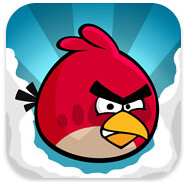 Ever since Google introduced the Android Marketplace, there’s been a lot of debate regarding the alleged supremacy of the iTunes App Store versus Google’s offering. While iTunes clearly houses a significantly larger number of apps, that of course doesn’t necessarily translate into a larger number of quality apps. Indeed, Android proponents are quick to argue that any mobile app actually worth having is available on both platforms. Whether you agree with that assessment or not, there’s no denying that the multitude of Android devices available, while great for consumers, can at the same time be problematic for developers who have to account for handsets with varying screen qualities, screen sizes, and more importantly differing hardware with varying performance.
Ever since Google introduced the Android Marketplace, there’s been a lot of debate regarding the alleged supremacy of the iTunes App Store versus Google’s offering. While iTunes clearly houses a significantly larger number of apps, that of course doesn’t necessarily translate into a larger number of quality apps. Indeed, Android proponents are quick to argue that any mobile app actually worth having is available on both platforms. Whether you agree with that assessment or not, there’s no denying that the multitude of Android devices available, while great for consumers, can at the same time be problematic for developers who have to account for handsets with varying screen qualities, screen sizes, and more importantly differing hardware with varying performance.
This issue was recently brought to the forefront recently when the developers behind Angry Birds apologized for poor app performance on Android and pointed their collective fingers at Android fragmentation. In case you’re unfamiliar, Angry Birds is the brainchild of Rovio Mobile and is one of the more popular and addictive iOS games around. The app currently occupies the number two spot on the list of most downloaded paid apps on iTunes where it’s also second top grossing app on iTunes.
Frustratingly, though, a vocal number Android users wanting to get in on the Angry Birds action have been disappointed with poor performance, with some not even being able to play the app at all.
Addressing the issues, Rovio explained that they’ve been unable to bring an optimal gaming experience to each and every Android device. Driving the point home, and to prevent unsuspecting Android users from throwing $0.99 down the drain, the developers listed 17 Android devices that are not officially supported by Angry Birds, including the HTC Dream, the Droid Eris, and the Motorola Backflip. Moreover, the developers caution that devices running an Android OS below version 1.6 are also not supported.
To help remedy the issue, Rovio is working on delivering a lightweight version of Angry Birds that will hopefully run smoothly on every Android handset, including low end devices with less processing power. While this isn’t an ideal solution given that Rovio had no desire to create multiple versions of Angry Birds for Android, they explain that it’s the only way they can please all of those pesky, or dare we say angry, Angry Birds fans out there.
Developers frustrated by Android fragmentation isn’t a new concept, and indeed, it has even kept some notable developers from even stepping foot into the Android Marketplace at all. For example, Smule is a popular development house known for their fun and intuitive music oriented apps such as Ocarina, I am T-Pain, and most recently, the Magic Fiddle app for the iPad. To date, Smule has sold over 4 million apps and over 500,000 songs via in-app purchases. In other words, they’re big time.
Yet when asked about plans to develop for Android earlier this year, Smule co-founder and CEO Jeff Smith didn’t mince words about why the company plans to focus its efforts exclusively on Apple’s iOS.
“Android is not in the plans for Smule,” Smith stated, “We just don’t see an opportunity for us to make money short term with Android.”
“The challenges with Android,” Smith continued, “is that the retail distribution is not clear for us and we don’t see how we can monetize through their current distribution. It’s not one platform, they’ve worked with handset manufacturers, the carriers, and so from a developers standpoint, its expensive to get with Android because we’re gonna have to test across all those platforms and develop across all those platforms. It’s not a clear return on investment for us right now. So we’re gonna wait and see.”
Also interesting is that Smith explained that the cost of porting an an iPhone app over to Android is significantly greater than porting the same app over to the iPad. “Our incremental costs to go to Android is probably about 2x-3x the first time out,” Smith noted, “To build for Android, that’s substantial.”
Again, fragmentation isn’t necessarily a bad thing as choice for consumers is always a positive. But there’s no denying that fragmentation can fundamentally affect the type of app experience developers can deliver across a number of varying devices.





November 20th, 2010 at 2:04 pm
Didn’t Steve Jobs talked about this very subject? Yep. Closed vs Open is a smokescreen.
http://googlesystem.blogspot.com/2010/10/steve-jobs-on-androids-fragmentation.html
November 21st, 2010 at 2:31 am
If you actually read the comments on the Angry Birds website you’ll find a lot of people stating that the a) the App worked fine in beta, b) the App worked fine on an Android 1.6 phone (as it did on my X10), c) the ads seem to be the biggest performance killer.
That being said, I believe Android and the OEMs need to find a more efficient way for developers to deal with multiple platforms.